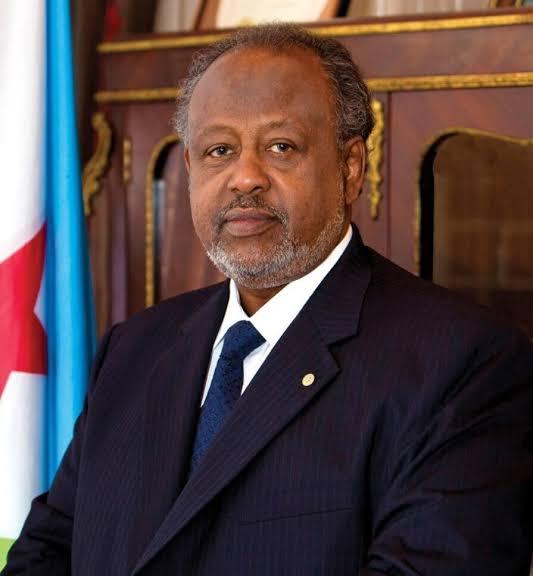Explore Our Bill Payment Services:

- Biography
- Djibouti
Ismaïl Omar Guelleh: Biography, Net Worth & Career Achievements (2025)
Ismaïl Omar Guelleh is a prominent African political leader and the long-serving President of Djibouti. Known for his strategic use of Djibouti’s location on the Horn of Africa, Guelleh has played a major role in shaping the country’s political and economic direction for over two decades.
Quick Profile Summary
-
Full Name: Ismaïl Omar Guelleh
-
Date of Birth: November 27, 1947
-
Nationality: Djiboutian
-
Current Role: President of Djibouti (since 1999)
-
Ethnic Background: Issa Somali (Mamassan subclan)
Early Life and Background
Ismaïl Omar Guelleh was born in Dire Dawa, Ethiopia, into a Somali family. He began his career in public service in 1964, working in intelligence and civil administration under French colonial rule in Djibouti (then known as the French Territory of the Afars and the Issas).
His early exposure to governance and his family's political influence laid the foundation for his future in national leadership.
Rise to Power and Presidency
Guelleh entered the political spotlight when he succeeded his uncle, Hassan Gouled Aptidon, Djibouti’s first post-independence president. In 1999, Guelleh was elected president and has since been re-elected multiple times (2005, 2011, 2016, and 2021), extending his leadership to over 25 years.
While he claims to have brought stability and growth, especially in infrastructure and foreign investment, critics argue that elections during his tenure have lacked transparency and fairness.
Leadership Style & Economic Strategy
Under Guelleh's rule, Djibouti has positioned itself as a strategic hub for international trade and military presence, thanks to its location near the Bab el-Mandeb Strait. His government has signed agreements with countries like:
-
China: Major port and rail investments
-
France & USA: Military bases
-
Ethiopia: Access to port facilities for landlocked trade
He has focused on developing transport, logistics, and communication infrastructure, turning Djibouti into a regional economic gateway.
Controversies and Criticisms
Despite notable development projects, Guelleh’s administration has faced serious criticism:
-
Election boycotts by opposition parties
-
Allegations of nepotism and elite dominance
-
Accusations of human rights violations and media restrictions
-
Reports linking his family to high-end properties abroad
Many observers label Djibouti’s political system as semi-authoritarian, with limited political freedom for opponents.
Net Worth (2025 Estimate)
Although Ismaïl Omar Guelleh's exact net worth is not publicly confirmed, several online estimates place his wealth at around:
Estimated Net Worth: $100 million – $200 million
Breakdown:
-
Political power and long-term control of the state
-
Influence over key sectors like telecom, ports, real estate, and energy
-
Family ties to major business ventures within Djibouti
Note: Some sources falsely report his net worth as being over $70 billion, but these figures are highly exaggerated and lack credible evidence.
Key Achievements
-
Transformed Djibouti into a key regional trade and military zone
-
Oversaw large-scale port and rail infrastructure
-
Maintained strong foreign relations with China, the US, and Gulf countries
-
Promoted digital communication and economic reforms, although often criticized for lack of inclusiveness
Frequently Asked Questions (FAQ)
Q1: How long has Ismaïl Omar Guelleh been in power?
He became president in 1999 and has been in office for over 25 years.
Q2: Is Guelleh’s government democratic?
While Djibouti holds elections, many observers and opposition parties argue that the political system lacks true democratic freedoms.
Q3: What is his biggest achievement?
His greatest impact has been turning Djibouti into a strategic port and military hub on the global map.
Q4: What is Ismaïl Omar Guelleh’s estimated net worth in 2025?
His net worth is estimated between $100 million to $200 million, based on his influence in key sectors.
Conclusion
Ismaïl Omar Guelleh remains one of Africa’s longest-serving and most strategic political figures. As the President of Djibouti, he has used his country’s geographical advantages to attract global attention and investment. While his economic policies have helped grow key sectors, his presidency is often clouded by criticism of authoritarianism and elite dominance.
As of 2025, he continues to play a significant role in both Djibouti’s internal affairs and its international partnerships — a legacy that will define East Africa for years to come.




